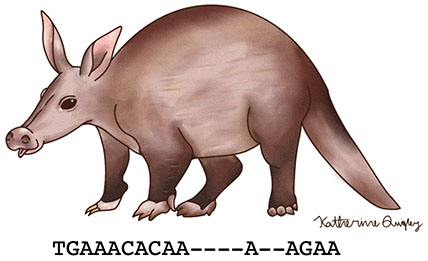The Quigley Lab studies tumor genomes to understand how urological cancers develop and respond to therapy. Our lab is part of the Department of Urology and the Helen Diller Family Comprehensive Cancer Center at the University of California, San Francisco.
For an overview of research in our group, visit the About the Lab page.
News
January 2024
- The Quigley lab has been awarded a $1,000,000 three year Data Science Award from the Department of Defense's Prostate Cancer Research Program. Metastatic castration-resistant prostate cancer (mCRPC) is unfortunately a lethal disease because most patients develop resistance to available therapies. Some mCRPC tumors resist therapy by becoming more efficient at processing androgen and remain androgen-dependent. However, a substantial number of mCRPC tumors change their behavior to reduce or eliminate their reliance on androgen signaling. This award will fund computational analysis into the transcriptional drivers of treatment-resistant mCRPC subtypes.
- Congratulations to Dr. Xiaolin Zhu on receiving a Physician Research Award from the Department of Defense's Prostate Cancer Research Program. Dr. Zhu will be co-mentored by Felix Feng and David Quigley on this four year, $750,000 award.
- We welcome UCSF Biomedical Informatics rotation student Siddharth Mahesh for a Winter rotation in the lab.
December 2023
- David Quigley presented a lecture on Quigley lab's recent study The genomic and epigenomic landscape of double-negative metastatic prostate cancer to the VA Precision Oncology Program for Cancer of the Prostate (POPCaP) program.
August 2023

- Congratulations to postdoc Thaidy Moreno on the publication of AARDVARK: An Automated Reversion Detector for Variants Affecting Resistance Kinetics in Bioinformatics. AARDVARK automatically detects and annotates mutations that cause resistance to PARP inhibitor and platinum therapy by analyzing tumor sequence data. You can download the AARDVARK R package on Github.
- UroToday Interview: David Quigley and Andrea Miyahira (Prostate Cancer Foundation) discuss the lab's recent paper on UroToday.
June 2023
- Congratulations to postdoc Arian Lundberg on the publication of The genomic and epigenomic landscape of double-negative metastatic prostate cancer in Cancer Research. In this work from our lab, presented at AACR Prostate Cancer 2023, we used unbiased analysis of 134 metastatic tumor biopsies from the West Coast Dream Team collaboration to dig into the transcription factors that drive different subtypes of therapy-resistance disease.
March 2023

February 2023
- David Quigley and postdoc Meng Zhang will be presenting talks the upcoming AACR Prostate Cancer meeting in March.
January 2023
- Congratulations to postdocs Arian Lundberg and Thaidy Moreno-Rodriguez on receiving UCSF Cancer Center Travel Awards to present their research at the upcoming AACR Prostate Cancer meeting in March!
October 2022
- We welcome Joaquín Magaña as a Fall rotation student from the UCSF Bioinformatics program.
- Congratulations to HemOnc fellow Xiaolin Zhu and postdoc Raunak Shrestha on receiving Prostate Cancer Foundation Young Investigator awards!
September 2022
- Congratulations to postdoc Martin Sjöeström and the West Coast Dream Team collaboration on the publication of The 5-Hydroxymethylcytosine Landscape of Prostate Cancer, now out in Cancer Research.
- Check out our latest commentary in Cancer Discovery, led by postdocs Thaidy Moreno-Rodriguez and Meng Zhang.
May 2022
- Meng Zhang received a travel award to attend the Society for Basic Urological Research annual meeting in November.
Come do your postdoc with us!
Postdoctoral positions for computational biologists are available in the lab of David Quigley. The Quigley laboratory is part of the Department of Urology at the University of California, San Francisco School of Medicine and the UCSF Helen Diller Family Comprehensive Cancer Center. We are a member of the UCSF Prostate Cancer Program, a highly collaborative scientific environment with a strong record of accomplishment of translational research excellence. Our lab studies how genomic and epigenomic alterations affect tumor biology and patient outcomes. We have a particular interest in understanding how tumors develop resistance to targeted therapy. Recent projects used large-scale genome sequencing to identify non-coding DNA structural variants associated with therapy resistance in advanced prostate cancer (Quigley Cell 2018) and a novel prostate cancer epigenomic disease subtype (Zhao Nature Genetics 2020).
We are seeking an independent and highly motivated candidate with a Ph.D. in a relevant field (e.g. Genetics, Cell Biology, Biostatistics, or Bioinformatics). Candidates should have a sound grasp of genetics and statistics. Proficiency in either R or Python and prior experience analyzing genome sequence data to extract biological insights are essential. Preference will be given to candidates who have published at least one original article as a first author and have excellent written and spoken English skills. Candidates trained primarily as experimental researchers who meet these criteria are highly encouraged to apply. Postdocs will receive intensive mentorship in structuring research manuscripts, designing effective grant applications, and developing interdisciplinary collaborations.
Appointment is by yearly contract. The position is at the Mission Bay campus in the center of San Francisco. Applications will be reviewed on an ongoing basis until the position is filled. Please email a cover letter describing past research accomplishments and future research interests and career goals, along with a curriculum vitae, and contact information for three references to Dr. David Quigley at [email protected].